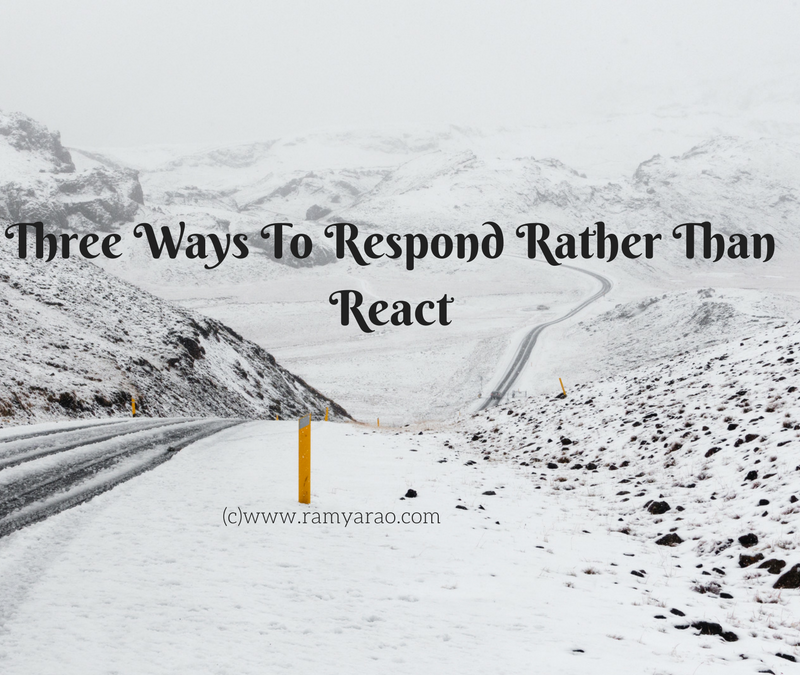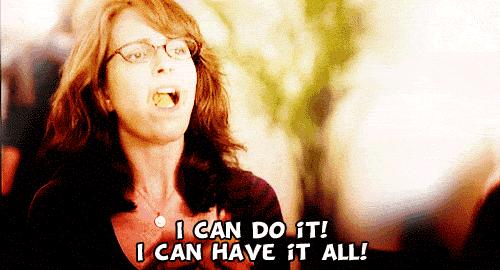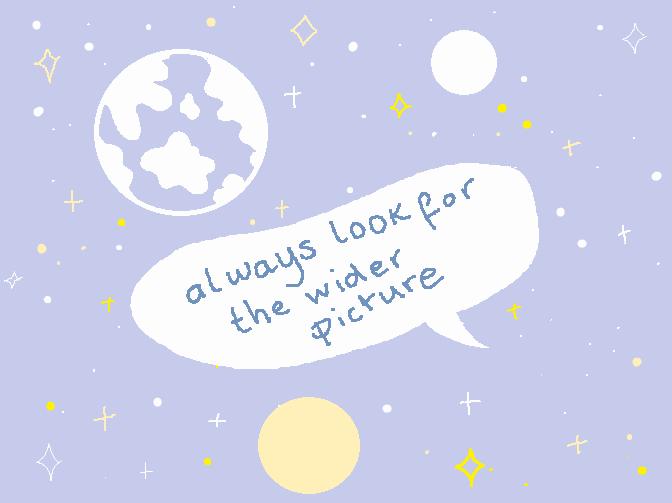“When you react, you let other control you. When you respond, you are in control.” ― Bohdi Sanders
We are all taught from our childhood to react and react quickly in any situation we are in. Do you remember how parents used to ask the kids to start reciting poems she learned at the school, and eyes were rolled ad it was indicated that she recite it. And that too every time any tom, dick and harry came. I feel this is the beginning of our history with “reacting”.
Slowly, in life, to any situation, our immediate action is the reaction. Reaction to others and the events around us.
Reacting is instinctual while responding needs efforts. When you are angry, it is easy to shout at the person available, get irritated and let one small event effect your entire day like the domino effect, but the person who caused it neither is aware nor is unhappy, unlike you. While had you taken a breath, thought about it, looked at time bigger picture and not had the internal conversation, instead introspected for few fleeting seconds, your decisions wouldn’t be irrational. And you would be responding instead of reacting.
And twenties is the best period to start practising. Unlearn the bad as soon as possible right?
Here are the three ways to learn to respond:
1. Pause
When we are angry or in a tight spot, just pause. Take some time, not everything needs to be done immediately. Make it a point to not make decisions immediately. Reflect. Breathe. Then start thinking of the best possible solution.
2. The Desire To Better Yourself
This technically should have been on the top. Unless you want to change yourself, be better, understand the importance of responding, you can never start it. And to learn to respond needs a lot of practice and the heart to face failure when you fail in the first few attempts.
3. See The Bigger Picture
It is easy to lose control, and do things that you probably would regret later. But it takes a lot of patience and mindfulness to see to it that the long term goals aren’t affected by the outbursts for a short term gain.
From now on Respond instead of React. If you are already into it, do share the journey from reacting to responding.





It’s the first point I struggle with. I forget to pause. True not everything needs to be done all at once. Loved the way to differentiated responding and reacting
Oh this is truly a problem with me. I react first, then have to moderate what I said (or my facial expression!) Thanks for this post. I must learn to respond after considerationg! How do you keep track of your blog posts? P is for Plan with Purpose as you Build a Better Blog ~ #atozchallenge
Pause, reflect and respond is a key mantra of mindfulness that works wonderfully. It takes time to perfect it so it’s important not to give up halfway.
agree with you completely – very important in life
Tina
Twinkling Tina Cooks
Pausing is tough for someone as hot headed as me. Sensible advise Ramz- good job!
So true Ramya. Once a harsh word is spoken as a reaction to a situation, it cannot be taken back. Better to take a moment and let matters settle and then respond.
Being hotheaded..i react first and then reflect..I think i should have thought for one second..Think my anger is more at that time..Thanks for the tips..I think i need to start following as people have got hurt from my reaction
Launching SIM Organics This April
*Menaka Bharathi *
*SimpleIndianMom*
Being hotheaded..i react first and then reflect..I think i should have thought for one second..Think my anger is more at that time..Thanks for the tips..I think i need to start following as people have got hurt from my reaction
Launching SIM Organics This April
*Menaka Bharathi *
*SimpleIndianMom*
Thanks for the tips..Being being a strong headed person sometimes react before hand and have felt really bad when i tend to reflect..Think i need to pause a bit and then react
Launching SIM Organics This April
*Menaka Bharathi *
*SimpleIndianMom*
Pausing is so important, and yet, it’s where we falter the most!
Brilliant post
Absolutely Ramya. It is so easy to shoot a response (in words or mail) in anger. I typically write a note and save it. When the anger subsides, I revisit and realize how many words in there I didnot mean and now would not send. Very apt post.
So true Ramya. So often we wish to respond (in words or mails) in anger. I typically write a note and save it. When I revisit it after the anger subsides, I realize that there would be so many words I did not mean and would not send ! Very apt post.
I appreciate these steps. Number one is my favorite and it helps in other areas as well. Yesterday I was coaching a client who always dropped what she wanted to do when her husband suggested something else. Inserting the pause made a big difference for her.
I actually had this exact scenario happen to me today. I posted something on social media, someone responded, and within *seconds* I was ready to react! But I took a few breaths and waited until a little time had passed. When I responded I was composed and no longer reactive. It helped IMMENSELY.
Great post!
Perfectly summed up Ramya. Pause, Reflect and then Respond. Most of us fail at the very first step. It will be very beneficial for us to adopt this approach to any situation.
Working as a researcher has basically taught me these points. So many times it has happened that my supervisor would ask me strange questions about my research and he would always tell me to take some time to think about what I am asking, contemplate and then respond. Don’t react.
But we all have feel that urge inside us to defend ourselves instantaneously when someone is being ridiculous. Its difficult to portray nonchalance and just introspect. Its our cross to bear though. Something we have to do if we need to improve our ourselves. Thanks for sharing. Enjoyed reading it.
Have a look at this Book Review on 2016’s bestseller Psycho Thriller.
Regards,
Pikakshi
Readers of the Night